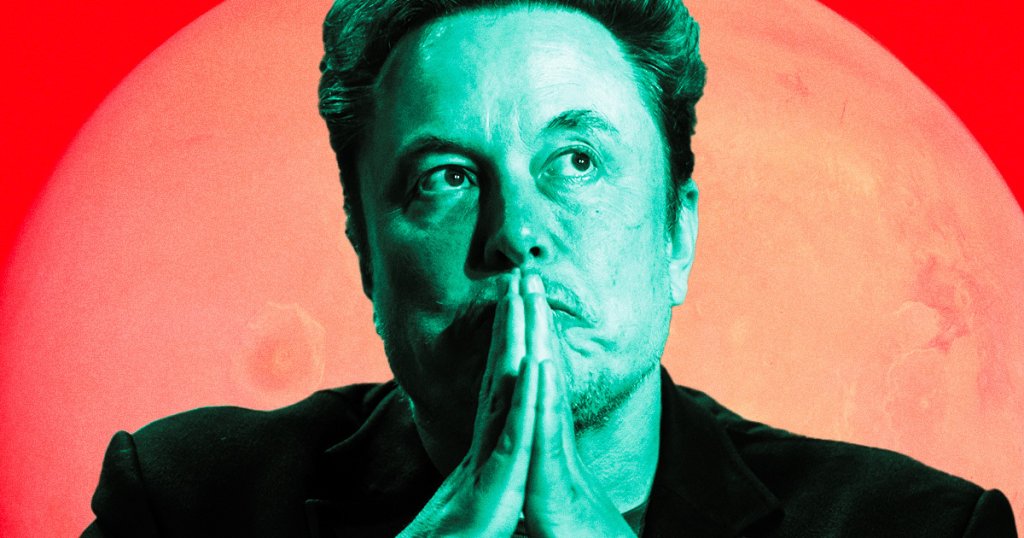Unclear whether his sperm will be incorporated.
Pioneering Planet
Elon Musk’s grand plan for Mars colonization includes, apparently, a long-term dream to create new species on the Red Planet.
As the New York Times noted in its expansive profile on the billionaire’s Martian pipe dream, which included among its revelations an alleged grandiose offer to seed the future colony with his own sperm, Musk has repeatedly floated the idea of a new species built for the ravages of the planet’s dry heat.
“I think it’s quite likely that we’d want to bioengineer new organisms that are better suited to living on Mars,” Musk said during a recorded 2013 interview, as quoted by Forbes that same year. “Humanity’s kind of done that over time, by sort of selective breeding.”
Though he didn’t get into specifics, the concept seems to be in line with others that have been floated over the years — including by NASA the same year, which discussed the prospect of using gene-splicing to create a “tough plant ‘pioneer’ that can grow in Martian soil.”
Over the ensuing decade, the multi-hyphenate business owner has, according to the people close to him who spoke with the NYT, repeated the idea to SpaceX employees and others in the company’s orbit over the years.
Plan Ahead
As with many Muskian proposals, the suggestion of future Mars-specific species is quite vague — including whether his sperm will have anything to do with the strange new organisms.
However, we do know some of his other plans for the colony, which as the NYT notes have ramped up in the past year.
According to the newspaper’s sources close to Musk and his manifest destiny moonshot, plans for small dome-shaped habitats have been drawn up. The people tasked with creating those Martian mockups have even begun figuring out what materials would be used to build them, though the NYT didn’t print those details.
SpaceX employees have also begun designing spacesuits to help withstand the planet’s cruel climate, and the company has employed a medical team tasked with researching whether people could have children there, which is very much in line with Musk’s natalist preoccupation.
The 53-year-old tycoon also reportedly told SpaceX employees earlier this year that he expects one million people to be living on Mars within the next 40 years — a departure from his previous comments suggesting it would take between 40 and 100 years to build a self-sustaining community on the planet.
When Musk puts his mind to something, he does occasionally manage to make things happen. But his timelines are often comically over-ambitious, and therefore should probably be taken with a grain of Martian salt.
Whether and how the bioengineered Martians might come to fruition, however, is anyone’s guess given that we’re still less than six years out from the revelation of the first known CRISPR babies.
More on Musk: Elon Musk Mocks Concern Over SpaceX Obliterating Baby Birds in Their Nests

